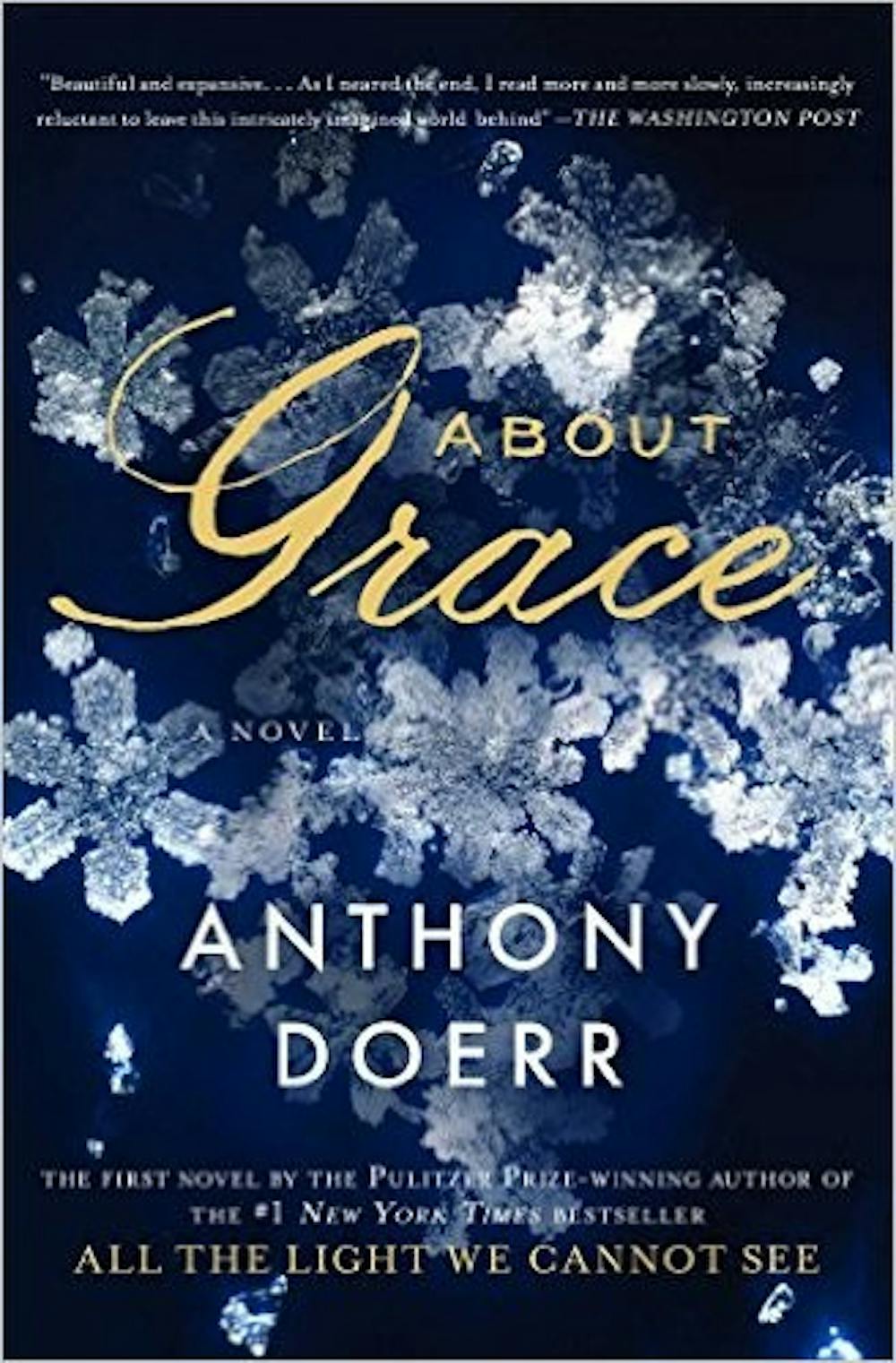3 stars
"In the night, wrapped in his poncho, the moon seemed to move closer, filling his whole frame of vision, seeping around the edges of his eyelids, abrading him, his sin and skeleton, until he felt he would become nothing but membrane, a rippling film of soul, until he was lying on the outermost ridge toward heaven, the stars at his feet, the very core of the universe within reach."
"About Grace" by Anthony Doerr is a whimsical and long-winded novel that follows the life of quiet, odd David Wrinkler as his life builds and crashes down around him. Alternately inspiring disgust and sympathy with his cringeworthy social ineptitude, Wrinkler moves through life as if sleepwalking. He has prophetic dreams, fixates on minute details and falls in love with those who he has no business loving. The pages fly past as Wrinkler endures a self-inflicted 25 year exile in the Caribbean and rambles around the States in a beat-to-heck Datsun while searching for his long-lost daughter. He almost dies many times (on purpose and not), but also experiences many beautiful and truly human moments. While he is not easy to relate to, Wrinkler is a fascinating and multi-faceted character whose actions never failed to surprise me.
"It was as if, like a human divining rod, he had been attuning to vapor as it gathered in the atmosphere, sensing it — water rising in the xylem of trees, leaching out of stones, even the last unfrozen volumes, gargling deep beneath the forest in tangled, rocky aquifers — all these waters rising through the air, accumulating in the clouds, stretching and binding, condensing and precipitating — falling."
Most of the imagery in the novel revolves around the presence of water — Wrinkler is a hydrologist as it exists around us, ranging from snowflakes and clouds to individual molecules. Great swathes of chapters are devoted to the subject, and while I enjoy reading about the glory of millions of tiny cataclysmic reactions that happen every moment in the air around us, most readers would be deterred by the lengthy explanations and the repetitive nature of the writing.
"Why do we let things that have already happened torture us?"
Every once in a while, the novel surprised me with an incredibly poignant one-liner. These food-for-thought sentences break through the long passages, giving the reader a mental pause from the deluge of senses being described. Here is where Doerr shines, doling out philosophy without all the clutter of his normal prose.
Verdict: After reading Doerr's #1 New York Times Bestseller "All the Light We Cannot See," I had very high hopes for "About Grace." These hopes were met with glittering imagery and extraordinary details coinciding with overdeveloped poetic realism, culminating into a work of contemporary fiction that can be described as brilliant but sometimes slightly over-wrought. I would recommend this novel to readers with a long attention span and a love for ponderous prose, but would not to readers who want fast-paced action and intense drama.
To get the day's news and headlines in your inbox each morning, sign up for our email newsletters.




